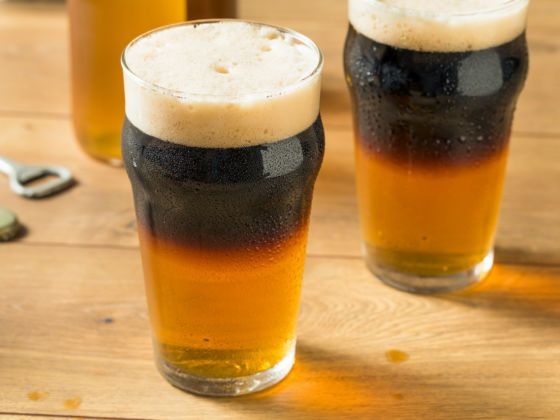Around 1920, the British sent a group of soldiers wearing dark shirts and khaki pants to fight the Irish Republican Army in the Irish War of Independence. These soldiers were known for abduction, torture, and murder, including a 12-person massacre at a 1920 Dublin football match. They were called the Black and Tans because of the uniform.
Today, that name may sound familiar to Americans accustomed to ordering what are often considered stereotypical Irish drinks. The Black and Tan is a layered drink made in a pint glass with Bass Ale on the bottom and Guinness floated on top. Guinness has a lighter density, so, when poured just right, the Irish stout doesn’t mix with the English ale, creating a khaki-colored bottom and dark top. The Irish have a name for this drink, too: a Half and Half, though it’s typically made with an Irish lager or ale.
